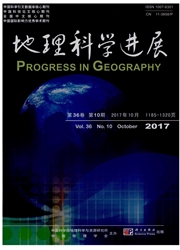

 中文摘要:
中文摘要:
采用生态系统服务估值、Matlab7.0多元线性回归分析和敏感性分析等研究方法,定量分析了生态系统服务价值的变化及其与气候、GDP、个人储蓄、城市化水平等驱动因子之间的相关性和敏感性,以识别影响青海湖生态环境的主要影响因素,以期为该区域生态保护调控和管理提供依据。研究结果表明:①2000-2008年青海湖地区生态系统服务价值平均为119.226亿元,2008年比2000年下降3.98%;②2000-2008年生态系统服务价值变化与气温和社会经济发展因素存在显著的负相关,对气温、GDP和城镇化率的弹性系数分别为0.896、0.249和0.2988;③2000-2008年,生态系统服务价值变化对城市化率和气温具有很大的敏感性,敏感性系数分别为4.979和1.712。研究表明,青海湖地区的生态系统服务下降是气候暖干化和经济发展的综合作用结果。青海湖地区应该关注农牧民生计,实施生态补偿机制以实现可持续的生态保护战略。
 英文摘要:
英文摘要:
By calculating the value of ecosystem services for wetland, grassland, forestland and farmland in the Qinghai Lake area from 2000 to 2008, presents a quantitative analysis of the sensitivity and the correlation between the changes of ecosystem services value and climate as well as socio-economic factors impacting land use changes including NPP(E), GDP, personal savings and urbanization level, and, by doing so, identifies the main factors and provides a basis for regulations and management of the protection of the Qinghai Lake ecosystems in order to achieve ecological and economic sustainable development for the region. The methods used include: a model for valuation of ecosystem services values, a multiple linear regression model in Matlab7.0, and the coef- ficient of sensitivity analysis. The results indicate: (1) From 2000 to 2008, the average ecosystem services value is 119.226 × 108 yuan, and the ecosystem services value decreases by 3.98%; (2) From 2000 to 2008, the changes of ecosystem services value in Qinghai Lake area have an obvious negative correlation with air temperature, GDPand the urbanization level from 2000 to 2008, with elastic coefficients of 0.896, 0.249 and 0.2988, respectively; (3) the changes of ecosystem services value in Qinghai Lake area are more sensitive to urbanization level and air temperature, and the coefficient of sensitivity are 4.979 and 1.712, respectively. These results demonstrate that warmer and drier climates are the major reasons for land use change in the Qinghai Lake region, and economic development and human activities in the region also affect land use change and cause the deterioration of the ecological environment and decrease of ecosystem services value. The authors suggest that attention needs to be directed to the livelihoods of the farmers and herdsmen in the Qinghai Lake area, and an ecological compensation system needs to be established, in order to achieve a strategy for sustainable economic growth and ecological protection.
 同期刊论文项目
同期刊论文项目
 同项目期刊论文
同项目期刊论文
 期刊信息
期刊信息
